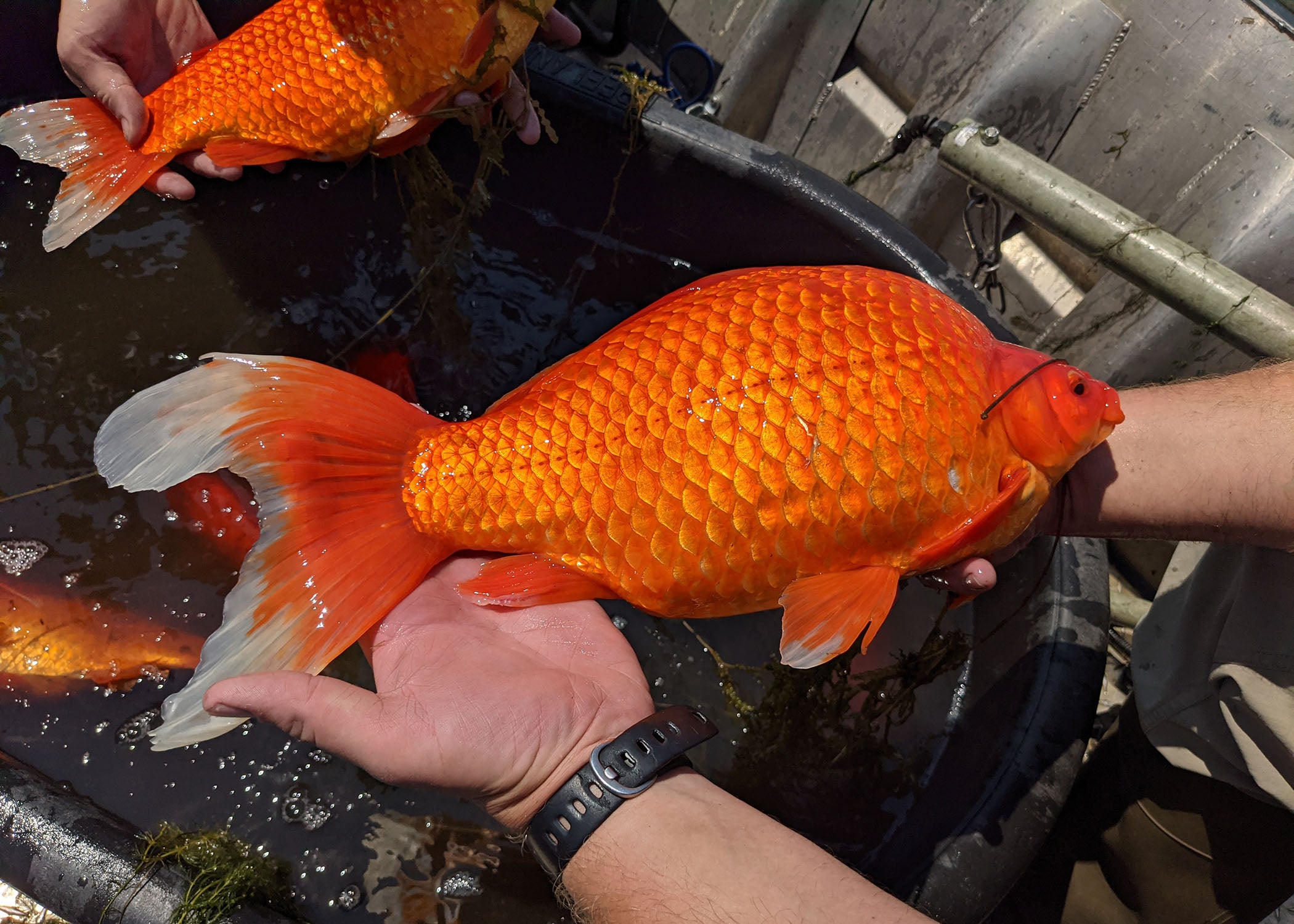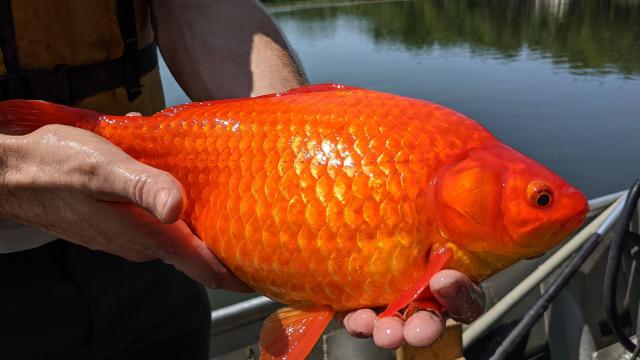It’s a common story: A family gets a goldfish, but then their kid tires of it — maybe soccer, guitar lessons, or schoolwork start taking priority. The family wants to get rid of the fish but doesn’t want to hurt it, so they release it into a local waterway or flush it down the toilet. A well-intentioned move, sure, but it’s causing ecological problems.
Last week, officials from Burnsville, a Minnesota town just south of Minneapolis, urged residents to stop dumping pet goldfish into ponds and lakes.
“They grow bigger than you think and contribute to poor water quality by mucking up the bottom sediments and uprooting plants,” the town’s official account tweeted. “Groups of these large goldfish were recently found in Keller Lake.”
They included photos of some of the fish they’d found in the lake, and bigger than you think is right.

Goldfish may be small when you take them home from county fairs or pet shops, but the creatures, who are members of the carp family, can grow to be 45.8 centimetres long. Native to East Asia, they’re invasive species when they’re introduced into American waterways.
The former pet fish can be a big nuisance. To eat, goldfish scoot across the bottom of lakes and ponds, clouding waters with the sediment they stir up and disturbing vegetation. This can make it hard for native fish populations to locate food.
Goldfish can also transmit parasites, and they are also an incredibly resilient species that can handle high turbidity, dramatic temperature changes, and low oxygen levels. So once they enter waterways, they can stick around for years.
To make matters even worse, the species reproduce quickly. Females produce up to 40,000 eggs each year, which is much more than most freshwater fish species. Since they have no natural predators in American freshwater ecosystems, lots of those offspring can survive and run rampant.
Goldfish are far from the only pets that can create such problems. Florida officials have spent years crafting policies and incentives to stop people from releasing pet reptiles — including Burmese and scrub pythons, Green anacondas, Nile monitors, green iguanas, and tegus. Those animals have wrought havoc on Florida’s delicate ecosystems, including a huge python problem in the Everglades. The state has an authorised python hunt in the park and has also urged residents to kill invasive iguanas “whenever possible.” (Of course, Florida being Florida, someone attempting to kill an iguana with a gun mistakenly shot a pool maintenance worker, leading the state clarify it meant calling professionals when the animals can’t be “safely” removed or dispatched.)
Outdoor cats, both feral ones and pets, are also a huge problem because they prey on native birds and mammals, sometimes in wildly sadistic ways. And thanks to their popularity as pets, non-native parrot species have also spread across the U.S. Scientists are researching their effects on ecosystems.
Minnesota officials have long warned about the dangers of releasing goldfish into the wild. Late last year, officials from Carver County, near Burnsville, said they’d pulled 50,000 goldfish out of local waters in one week, estimating that a shocking 500,000 more may remain. It’s not just Minnesota, either. In 2013, conservationists from the University of Nevada said they’d been finding more and more oversized goldfish in Lake Tahoe, including one monster that weighed over 1.8 kilograms. And goldfish have also taken over waterways in Colorado, Maryland, and even the Canadian province of Alberta, too.
So if you want to get rid of your goldfish, consider giving it away to a pet store or aquarium instead of freeing it into a lake. Your local ecosystems will thank you.
